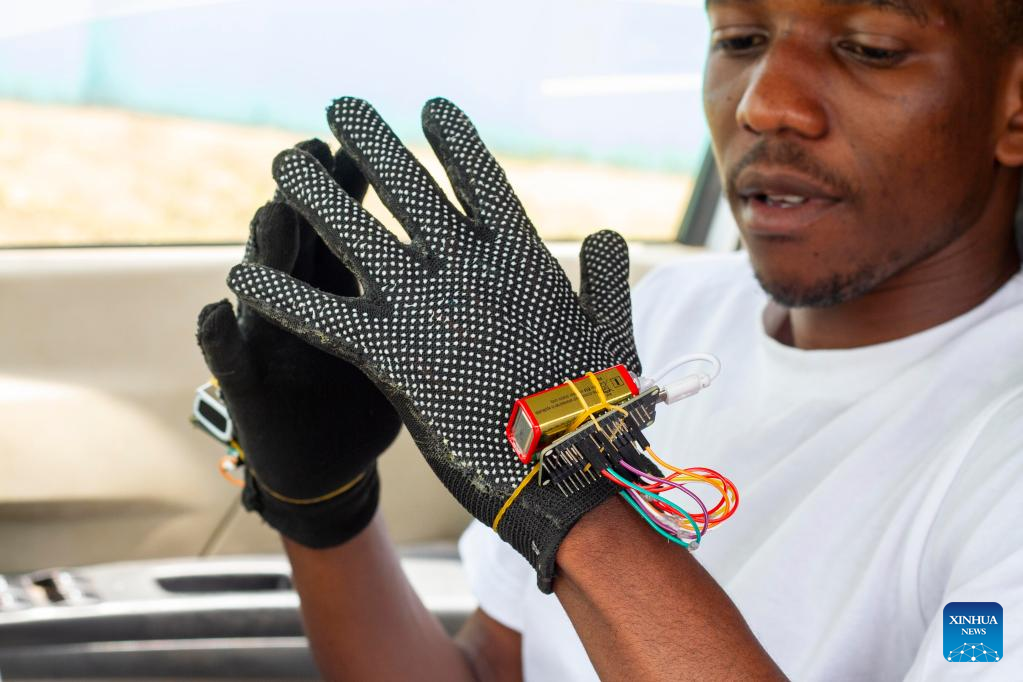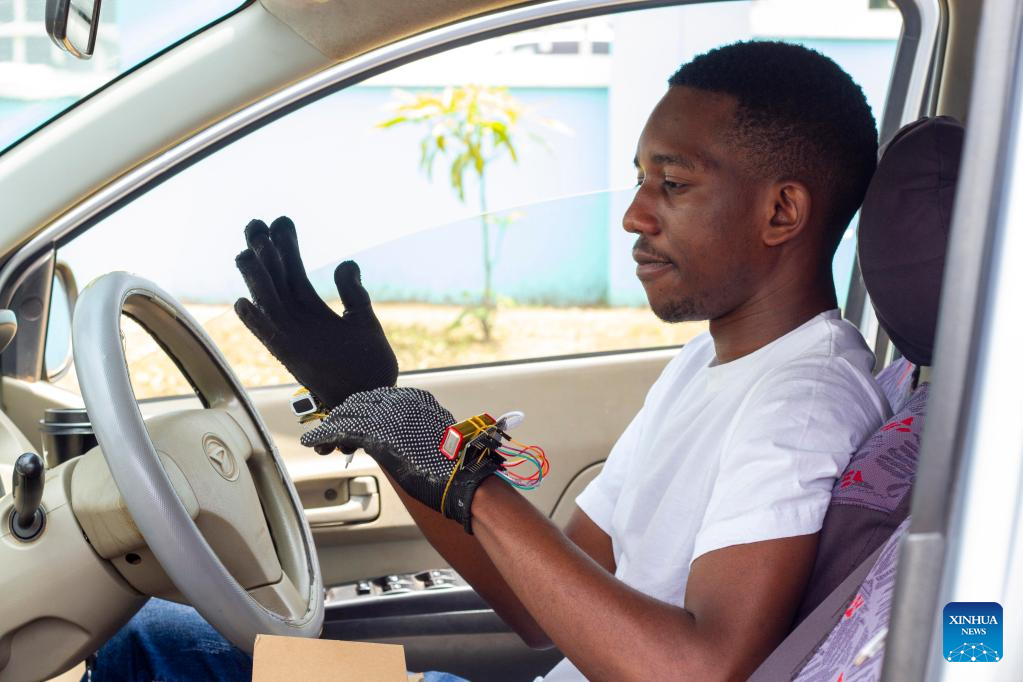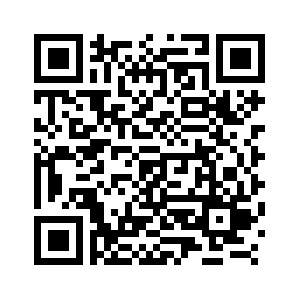
Madalitso Mnduwira shows his glove invention in Blantyre, Malawi, Nov. 10, 2022. (Photo by Joseph Mizere/Xinhua)
BLANTYRE, Malawi, Nov. 19 (Xinhua) -- As the saying goes, "necessity is the mother of invention", failure to satisfactorily communicate with a close friend with speech impairment got 21-year-old final year student at Malawi's University of Business and Applied Sciences (MUBAS) thinking.
The young student, Madalitso Mnduwira, has ended up devising gloves that when worn and used in sign language gestures, they interpret the communication in speech using English or local languages.
Mnduwira, who is studying Information Technology at the University told Xinhua that in a recent interview, with the innovation, he hopes that those with impairment that require use of sign language to communicate will be able to do so effectively.
"The speech gloves, which have been made using locally made low-cost materials, will help bridging communication gaps between people with hearing impairment and the public," explained the innovator.
The prototype of the invention has undergone trials and, according to Mnduwira, it has proven to be accurate and effective.
The innovative student, who fell in love with science subjects right from his secondary school days, intends to produce as many gloves as possible to ease communication between those with hearing or speech impairments and the public.
"This is just a prototype of the product to come," he explained. "I hope to find sponsors to fund mass production of the product so that many people can be assisted."
Mnduwira's innovation has already attracted the attention of many, including persons with speech and hearing impairments who rely on sign language to communicate.
A 26-year-old business woman based in Malawi's commercial city of Blantyre, Mercy Kathemba, is among those in praise of the new innovation.
The woman was born deaf and she told Xinhua that communicating with her customers using sign language has always been daunting.
"It is always tricky and difficult to communicate to my customers: most people in my area cannot understand sign language and it's always expensive to hire someone to interpret my sign language," explained the woman.
"I strongly believe that this development is going to provide solutions to most of our communication problems. I look forward to these speech gloves being more affordable to reach many people," she added.
Malawi Council for the Handicapped (MACOHA) has also raised its eyebrows in anticipation of advanced communication through the "speech gloves".
The Council's public relations officer, Harriet Kachimanga, also noted that many people are not conversant with sign language and that Mnduwira's innovation will make it easier for people who cannot use sign language to comprehend the gestures.
"This is a very good development: There are persons with hearing and speech impairments with knowledge and skills that can advance the country's development but they do not contribute fully to the society because of communication limitations," explained Kachimanga.
"We believe that development of such innovations will make it easier for persons with speech and hearing impairments to communicate with the public personally and contribute to matters of national interest," she concluded.
According to the African Sign Language Resource Centre, Malawi has very few trained interpreters and most of them are not accredited.
Out of a population of 52,000 deaf people, there are only 11 interpreters, who work as volunteers and they are not salaried. ■

Madalitso Mnduwira shows his glove invention in Blantyre, Malawi, Nov. 10, 2022. (Photo by Joseph Mizere/Xinhua)



